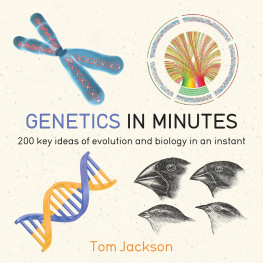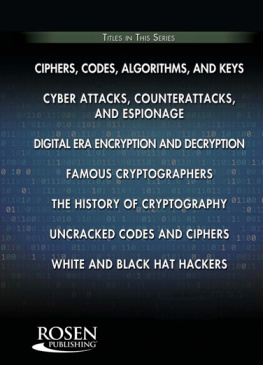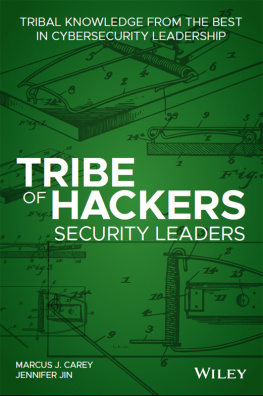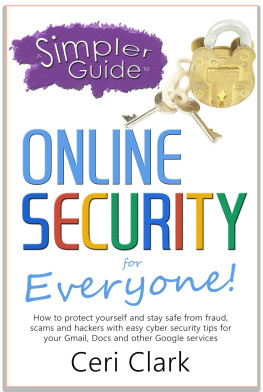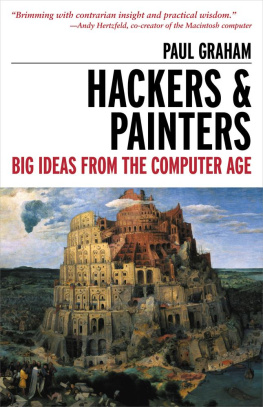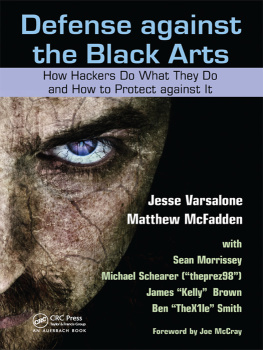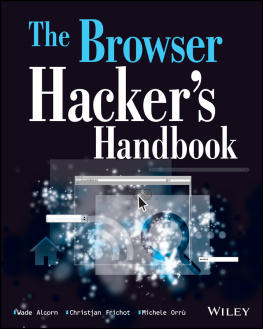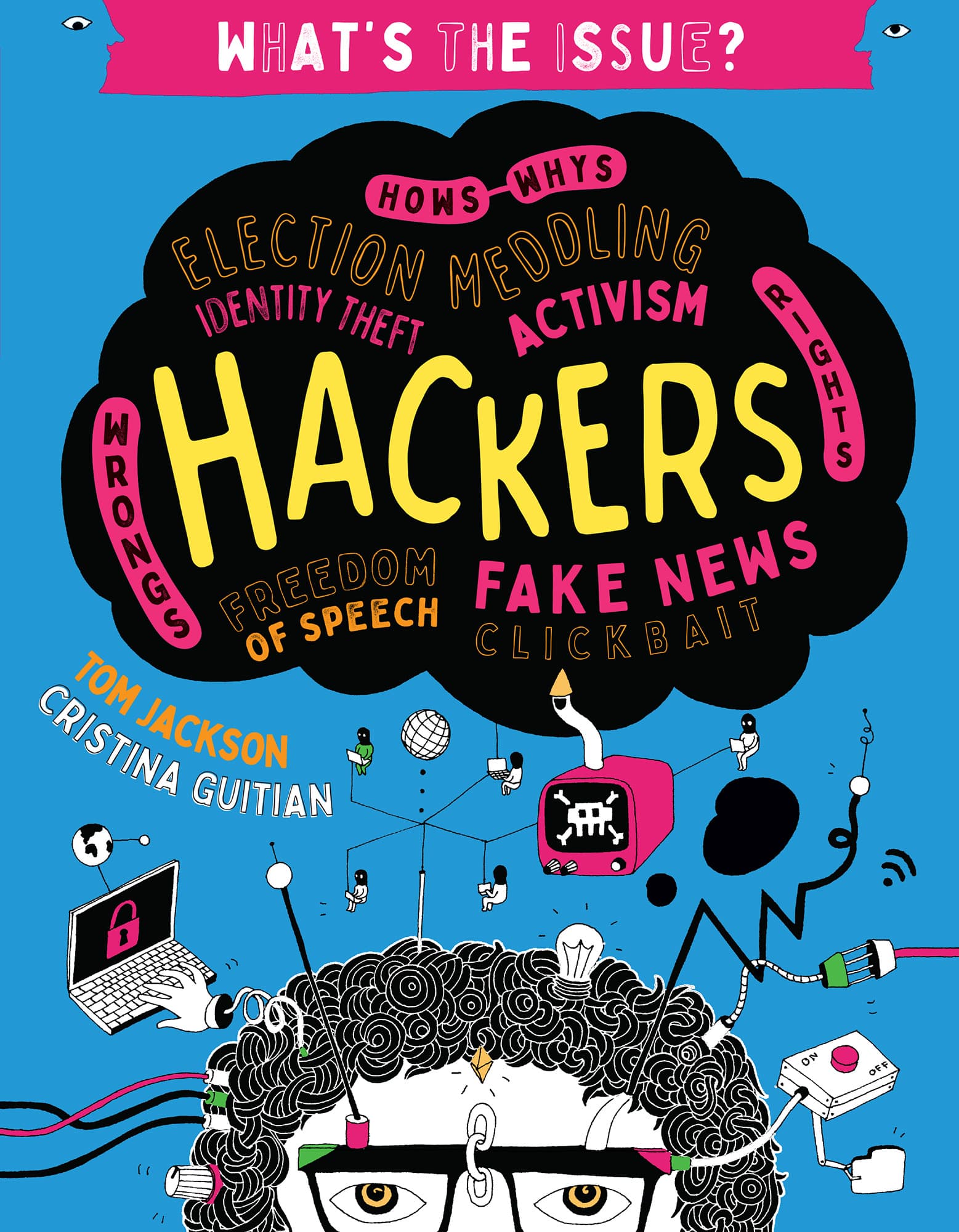THEN ITS UP TO YOU TO MAKE AN INFORMED OPINION.
Hacking and the online world are expanding into all areas of our life; into art, money, politics and crime, and into the way we communicate. It sounds like something you need to know about. In this book, Ill break it down for you, but even then, the wrongs and rights of hacking are not always clear. Every now and then, youll get a chance to question what youve read and think about it.
WHAT DO YOU THINK?
WHAT DO YOUR FRIENDS THINK?
WHAT DO YOUR PARENTS THINK?
WHAT DOES YOUR TEACHER THINK?
Everyone and anyone can have an opinion, but not everyones will be informed. With this book, you will have the knowledge to back up your arguments.
OPINIONS MATTER, SO WHAT WILL YOURS BE?
WHAT IS A HACKER?
D o you know a hacker? Are you one yourself? (Is that a secret?) Computer hacking is an intriguing subject, but what is it and what are its effects? Hackers in films and on TV lurk in dark rooms, typing really fast. They are mostly strange, shy characters and are seldom the hero of the story. In real life, the faces of real hackers stare out from news stories about serious crimes where secrets or money have been stolen. So, are hackers always freaky, creepy, or crooked? Lets find out.
NAME IT
To understand hacking, its best to start with the origin of the word. Hack means to cut up roughly. It was first used in the modern sense in 1955not in relation to computers but to model railways! The members of the Tech Model Railroad Club at the Massachusetts Institute of Technology (MIT), were coming up with ways of getting more power to the tracks and kept making rapid and rough changes while trains were runningoften overloading the circuits. This was called hacking, and these model train enthusiasts were the first hackers. The term hacker came to refer to a person who messes around with technology to see if they can get it to work better or in other waysbut who may break it in the process.

MITs Tech Model Railroad Club began after World War II. As well as building track, modeling landscapes, and painting carriages, its members wanted to build a computer control system for the impressive model railway. They had access to some of the biggest and best computers in the world, and so hacking the railway led to hacking computers too. At MIT today, a hack is also a prank using buildings, furniture, or other student facilities. Although they are against the rules at MIT, this kind of hacking is tolerated because it encourages students to think differently about things.
DEFINING HACKERS
By 1975, computer scientists had invented a whole new language, which they recorded in the Jargon File: a list of tech slang. The Jargon File defined hacker in several different ways. Here are the main ones:
A person who enjoys exploring the details of programmable systems and how to stretch their capabilities, as opposed to most users, who prefer to learn only the minimum necessary.
A person who likes to spend time and effort solving a problem that has no obvious value, and enjoys the challenge of getting around limits and rules.
An expert or enthusiast of any kind.
A malicious meddler who tries to discover sensitive information by poking aroundalso known as a cracker.
THE WAY AHEAD
So hackers are creative and clever, they bend the rules and figure out new ways of doing things. Hacking is not confined to computers and communicationspeople hack genes, hack engineering, and hack life itself. Hackers need not be the bad guys either. Many of todays top tech developers started out as hackers. However, our attention is generally on the crackersthe harmful hackers. If we drop our guard, sooner or later theyll get us. We need to understand more about that.
KEEPING SECRETS
T he rise of the hacker has gone hand-in-hand with the rise of digital technology. The convenience of this tech has had a big effect on the way we live. We are able to buy and sell whatever we want with a few clicks, and we can share our lives with loved ones as if we were all in the same room. However, to do that, we need to keep secrets. Secret passwords and information keep our digital lives private and safe. How do we stop those secrets from falling into the wrong hands?

SECRET WRITING
Okay, everyone has secrets. Each secret is a problem to solve. Is it right to keep it or should I share it? This is something people struggle with throughout their lives. However, digital secrets pose a different problem entirely. We have to share them with others to use our online services but make sure people who are not involved in the transaction cant watch. Fortunately there is a long history of communicating in secret using a system called cryptography, which means secret writing. Cryptography is the first line of defense against a hacker.

CODES
The simplest kind of cryptography is a codesimple in that it is easy to set up, but not necessarily easy to crack. The word code is often used to mean any way of hiding the true meaning of a message, but more correctly a code is a system where the meaning is hidden by changing entire words. Heres a coded message: This orange is blue! It could mean absolutely anything. You can only find out for sure by using a codebook, which lists code words and their true meaning. In this code, orange means book and blue means amazingits obvious once you know!
WHOS WHO?
CODE TALKERS
The United States military used a special team of code experts in the world wars. Native American radio operators used codes based on their languages, such as Comanche, Navajo, and Cherokee. Even if the enemymostly German or Japanese speakerslistened in to the radio signals, they had no idea what any of it meant or how to even begin to figure it out.


